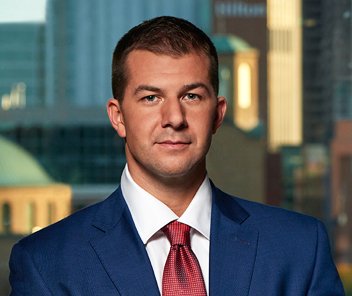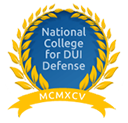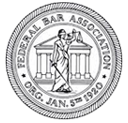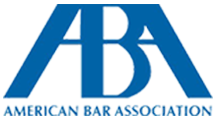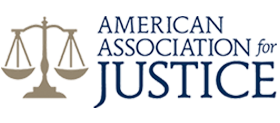

Ohio Criminal Process
Many alleged offenders facing criminal charges have no previous experience with the criminal justice system. Although seemingly complicated, the criminal process can be broken down into a few subcategories, making the procedure easier to understand.
Along with learning the step-by step process, it is also important to gain a strong comprehension of the legal terminology used. Knowing what goes into a criminal allegation on the state level will not only give you a valuable understanding of how everything is handled, but it will help put your mind a little more at ease during what is understandably an otherwise very stressful time.
Cincinnati Lawyer Discusses Criminal Process in Ohio
If you were arrested for any kind of alleged criminal offense in Central Ohio, do not think that you have to walk into the courthouse alone. The Joslyn Law Firm stands by the side of alleged offenders in Cincinnati and the greater Hamilton County area, including Norwood, Lebanon, Hamilton, Middletown, and several other surrounding communities.
Brian Joslyn is an experienced Cincinnati criminal defense attorney who also serves areas of Franklin County, Butler County, Clinton County, Clermont County, and Greene County. Call (513) 399-6289 or send an online message today to take advantage of a free, confidential consultation will let our lawyer review your case.
Overview of Criminal Process in Hamilton County
- What happens when a person is arrested?
- When do alleged offenders make their first appearances in court?
- How does a defense attorney learn what evidence a prosecutor has?
- When do lawyers and prosecutors try to make deals?
- What is an evidentiary hearing?
- Do the prosecutor and defense attorney get any other chances to clear things up if a plea deal cannot be struck?
- How does a trial unfold?
- Do alleged offenders have any options if they are found guilty?
Investigation, Arrest, and Criminal Booking
When an alleged crime has been committed, police officers can either make an arrest immediately if they witnessed the commission of the criminal act or after an investigation leads to the identification of the alleged offender. A person who is suspected of breaking local, state, or federal law can be taken into custody by law enforcement wherever the authorities encounter that alleged offender.
Following arrests, the police will transport alleged offenders to the local police station where they will be fingerprinted, photographed, and asked basic information questions, including name, address, and date of birth. All of their personal items will be catalogued and stored for when they are released.
Arraignment
After alleged offenders have been formally charged for operating a vehicle under the influence of alcohol or drugs (OVI), they are required to their make initial court appearances. Also called an arraignment, the first appearance is used to inform alleged offenders of the charges they are facing and their constitutional rights.
Alleged offenders also enter their initial pleas of guilty, not guilty, or nolo contendere (no contest). In felony cases, the judge will determine whether bail should be available and what amount to set it at.
A plea of guilty is an admission to the facts and charges against the alleged defender. No contest is a plea in which alleged offenders do not admit to the charges, but do not challenge them either.
In nearly all situations, it is best for an alleged offender to enter a plea of not guilty—which is a denial of the criminal charges—at an arraignment. A not guilty plea can always be changed to a guilty plea later on, but the reverse is not true.
Discovery
An alleged offender’s attorney can request any and all relevant documents, including witness statements, victim statements, physical evidence, and police reports during. These requests are considered discovery, and it allows defense lawyers to see any evidence that will be used against you during trial.
If for some reason the prosecution refuses to hand over any documentation, an attorney can file a motion to compel discovery. Similarly, a lawyer can also file motions to suppress evidence that was illegally obtained, motions to dismiss when there is lack of evidence, or motions in limine when certain testimony should be excluded or certain evidence should not be introduced at trial.
Plea Bargaining
As soon as the arraignment, a defense attorney and prosecutor may begin negotiating an agreement to avoid the significant cost and time needed to take the case to trial. A plea bargain is a deal struck between the lawyer and the prosecutor typically for the alleged offender’s plea of guilty to reduced charges and/or lessened penalties.
Alleged offenders should never attempt to enter these negotiations without legal representation. Because most cases never even make it to trial, plea bargains produce a bulk of the ultimate outcomes.
Preliminary Hearing
A preliminary hearing is a proceeding after a criminal complaint has been filed by the prosecutor, to determine whether there is enough evidence to require a trial. The preliminary hearing is a critical aspect of felony cases and will usually occur within 10 days of the defendant's initial appearance.
In the United States, the judge must find there is probable cause that a crime was committed if the case is to move forward. The prosecutor does not have to prove that alleged offenders committed the crimes during these hearing, only that there is sufficient probable cause to believe they did.
Pre-Trial Hearing
If the two sides cannot arrive at an agreement following plea bargaining, the case will proceed to trial. In some cases, the judge will schedule a pre-trial hearing (also referred to as a pre-trial conference).
The goal of a pre-trial hearing is to see if a resolution can be reached without having to take a case to trial. During the pre-trial hearing, the prosecution and defense discuss the strengths and weaknesses of their cases, and may again attempt to re-negotiate a plea agreement.
Criminal Trial
The criminal trial typically includes the following steps:
- Alleged offender (referred to in court as the defendant) enters plea;
- Opening statements by prosecutor and defense lawyer;
- Prosecutor presents evidence, calls and examines witnesses;
- Defense attorney cross-examines prosecution witnesses;
- Defense lawyer presents evidence, calls and examines witnesses;
- Prosecutor cross-examines defense witnesses;
- Prosecutor allowed to present rebuttal evidence or call rebuttal witnesses;
- Closing arguments;
- Jury instructions;
- Jury deliberations; and
- Verdict.
After a verdict has been reached, the alleged offender will either be set free if found not guilty or have a sentencing date scheduled if found guilty.
Appeals
For all Ohio state trials, convicted individuals have the right to appeal a conviction. An appeal is typically based on a mistake of law made during the trial (for example, evidence was admitted that should have been excluded).
The mistake must have been a "reversible error," meaning it is serious enough that it would have affected the verdict of the judge or jury. If the appeal succeeds, a new trial may be ordered.
In Ohio, misdemeanor criminal cases handled in municipal and county courts as well as felony cases heard in courts of common pleas are appealed to one of the 12 courts of appeals in the state. If an alleged offender attempts to appeal the decision of a court of appeals, the Supreme Court of Ohio is the court of last resort on state constitutional questions and questions of public or great general interest.
Find a Lawyer for Help with the Criminal Process in Cincinnati, Ohio
Were you or your loved one arrested in Central Ohio for driving under the influence (DUI) and/or a related criminal offense such as possession of a controlled substance or reckless driving? The Joslyn Law Firm aggressively defends clients throughout Cincinnati and many nearby communities in Hamilton County, Greene County, Clermont County, Clinton County, County, Butler County, and Franklin County.
Cincinnati criminal defense attorney Brian Joslyn is dedicated to protecting the rights of every person he represents and fighting to achieve the most favorable outcome to every case. He can review your case and help you understand all of your legal options as soon as you call (513) 399-6289 or complete an online form today to schedule a free consultation.






